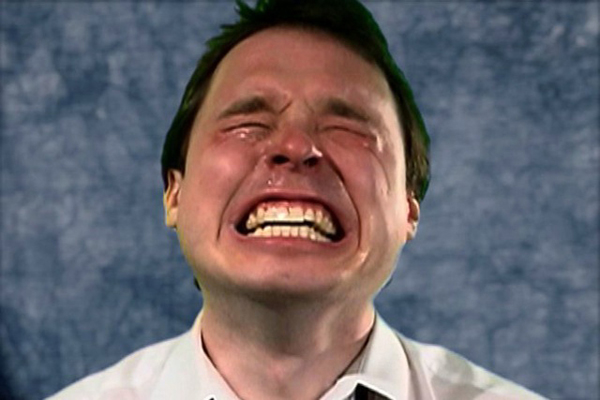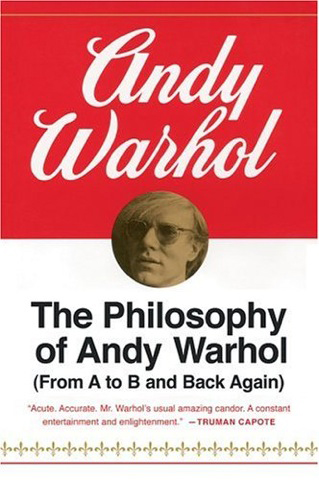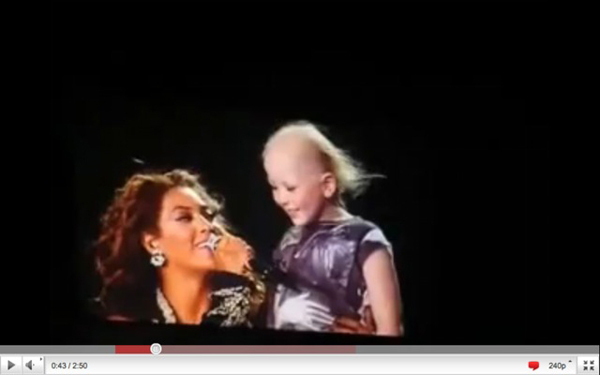G-Chat
By Jacob Ciocci and Jesse McLean
 Silver Surfers / Jacob Ciocci
Silver Surfers / Jacob Ciocci
Jesse: I'd like to ask about Silver Surfers [2011], in particular how you got the idea to make a piece with senior citizens that explores how we use and interface with technology?
Jacob: The idea actually came about when I decided to apply for my fellowship at Eyebeam. I was thinking about how some people say my work is about technological change, “progress” or lack of progress, how things change and how they stay the same, and I was wondering if maybe working with a different generation might take that conversation to a different place and the idea of making a sci-fi movie came out of that because to me sci-fi is about thinking about technology, our experiences of technology, in an imaginative way. Wait, it’s not a movie. It’s just an 11-minute video. ☺
Jesse: That’s a movie. Moving picture. You could even call it a “talkie.”
Jacob: LOL
Jesse: Something that comes across in the piece and in other examples of your work is an interest in and reliance on technology combined with a fear of it taking over one’s life, or maybe being consumed by it. In Silver Surfers you revisit the theme of being placed in a box, which has come up in other work. Did you feel that the cast of Silver Surfers shared this simultaneous interest in and fear of technology?
 Magic for Beginners / Jesse McLean
Magic for Beginners / Jesse McLean
Jacob: Yes! Actually it was an interesting group that I worked with. They were from The New School's Institute for Retired Professionals, a self-selecting group of retired people interested in life-long-learning. They were both savvy with computers and weary of them, excited by the Internet and grossed out by cell phones. I feel really ambivalent about technology and it was a sentiment they shared.
Jesse: I love how you begin the piece by showing the set up, including the green-screen background and stating your intentions, which are quickly interrupted. Sometimes the piece feels scripted and other times it seems like you were interviewing the cast, is that accurate?
Jacob: Yes, I did interviews for two days and then invited them back and did two days of improvised acting along with lines that I had them say. The “lines” were really loosely based on some of the things they said in their interviews. The idea was to blur those two types of footage together, which is something you do sometimes in your work as well, [mixing] the scripted and the improvised. That may have even inspired me… I’m thinking of the improvised crying in Magic for Beginners [2010] and how that seems “real” and at the same time forced. When I watch it I’m not sure if it is footage you shot or footage you found which I find to be a really interesting way of working with video.
Jesse: Thanks. I wanted those parts (the forced criers) to look a bit like institutional videos, with a grey backdrop. And I definitely wanted the odd tug of watching someone make themselves cry, you feel uncomfortable but you know it's fake so your involvement is distanced. It was a chance to consider the possibility of emotions being artificial.
 Magic for Beginners / Jesse McLean
Magic for Beginners / Jesse McLean
Jacob: That seems to be an interest of yours in more than one of your videos—looking at moments of “intensity” from a distanced place. Sometimes it is emotional intensity, other times it seems to be spiritual or revelatory intensity. I think it all comes together for me (and also relates directly to Silver Surfers) in Magic For Beginners when you quote “The Philosophy of Andy Warhol”: That perhaps the reason we are able to look at emotions and even life in general from such a removed place is because of media, or in the case of the Warhol quotes, the technology of television in particular. That television does something to us and affects our ability to think about emotions, to even experience emotions.
Jesse: Ha ha, I wonder about that, too! I don’t understand why I am brought to tears while watching Toy Story 3 [2010] on a plane but never cried over the death of my grandmother. It feels messed up. In Magic for Beginners I was trying to also acknowledge that media provides fantasies, which in turn can provide emotional outlets. I’m not sure if media is to blame for our emotional oddities, but it can sometimes help me, to watch something sappy and have a good cry. It’s a relief to have any reaction, even if it is a prescribed reaction. But strange, too. I was struck by something in Silver Surfers, when you introduce the idea of the “eternal place inside the box” with “no limits.” It occurred to me that technology, especially the Internet, could be incredibly appealing to senior citizens (people often with health problems that pose limits and people that are approaching the end of their life) because of these reasons. What do you think?
Jacob: Wow, I had not thought of it like that. A space with a bit more freedom than the physical world, maybe? The “land of no limits” kind of reminds me of Cocoon [1985] for some reason, which I watched before I started this project. Cocoon was interesting because it seemed that the filmmaker was talking about the failure of nursing homes—how this big group of people perhaps felt left behind by society once they retired. This vision of older people was an idea I was critiquing in Silver Surfers. Getting back to your question: I don't know if the older people I worked with would actually want to live predominantly virtually, they really seemed to privilege person-to-person contact. The question that I asked them where they responded in that way was about how they envisioned the human soul, or the after-life. But I wanted even those visions to seem like perhaps they were being affected or controlled by “the boxes.”

Book cover for the 1977 reissue of The Philosophy of Andy Warhol (Andy Warhol, 1975)
Jesse: Do you ever feel controlled by media? You use a lot of found footage in your work; do you ever think that is a reaction to ingesting a ton of it? Like it is reclamation? Or do you think it is more inspired by nostalgia? Both?
Jacob: I think I am fascinated with the concept of being controlled by media. It is something that a lot of sci-fi seems to build off of, that fear of being controlled, of losing ourselves, or who we are. Again I guess I don’t know if I’m being controlled or not, I know that I really enjoy using media, for both conscious and probably sub-conscious reasons. The conscious reasons have to do with my own history—I remember watching MTV in high school and thinking, “I really like watching TV but I like to think about it, too. I wonder if one day I can make art about this.” It took me about ten more years to actually start doing that. I like what you were saying about how TV and movies can provide a space for emotional outlet, how do you experience or think about that experience in the age of “on-demand” (Netflix, etc). Perhaps more radically the short clip world of YouTube? I think there's something interesting with emotions happening on YouTube, but it is hard to articulate. For example, have you seen videos like these? http://www.youtube.com/watch?v=4KPY8JxouRo
Jesse: I hadn’t seen that particular video but I like hearing the screaming fans in the background while seeing how uncomfortable that kid looks. That seems to sum it up! To be honest, I can’t imagine not being interested in media. I can understand hating its intrusion in our lives, but I can't imagine not examining it. Let me ask you something, you grew up in a household that was somewhat new age in it’s philosophy, is that right?
Jacob: That is correct. We had lots of pictures and books by and about a guru named Meher Baba and I went to a Baba camp for teens like three or four times. Also we once had a meditation room in our house for a bit, if I remember correctly, and some crystals. One of the more influential memories is the new age products magazine that would get sent to our house every other week or so. I loved looking through that thing!! Everything was purple…
Jesse: Do you follow the teachings of Baba? Anything that relates directly to how you approach making art or living life?
Jacob: I think it has undoubtedly been an influence. I’m not sure I follow any teachings daily, he was not interested in creating any new doctrines but instead stressed “the classics” such as “god is love” and “try to live in the moment.” But I know for sure that the books that I read and the people that I have met have had an influence on how I make things. One interesting side-effect of being involved in a kind of post-hippy spiritual community in high school is that I feel like I have a lot of interest in studying or thinking about other people’s spirituality. I’m not sure the word empathy is correct but I am fascinated by people who “go all the way” with their beliefs—like that scene from The Eternal Quarter Inch [Jesse McLean, 2008], where everyone is getting so into the moment. I’ve been there and have felt both in the moment and outside of it at the same time. I kind of can’t stop thinking about that actually, when I make things. I’m trying to create that experience for others perhaps? Which brings me to a question for you, unless you still have one for me…
 How to Escape from Stress Boxes / Paper Rad
How to Escape from Stress Boxes / Paper Rad
Jesse: I'm ready.
Jacob: Why do you think you have gotten so interested in studying/thinking about moments where people “lose themselves” in their beliefs, or don’t, or that tenuous relationship? When did it first hit you this was something interesting to you? I remember one of your earlier films was a mostly abstract, beautifully edited piece focusing on Christmas lights. In context I wonder if you think of that piece as being about “the sublime” as well?
Jesse: That piece started as a documentary! Which is actually how I might connect it to more recent work. I approach projects as a chance to research eclectic interests and explore broad themes, or themes broadly ☺. As for my interest in studying how people adhere to or develop belief systems, I think it probably can be traced to my own childhood. My parents were also kind of post-hippies and they raised us atheist. Back then, it really wasn’t common, I didn’t know any other atheist kids. My religion as a kid was television! It seems almost too obvious that I would be interested in belief systems and the sublime. I certainly am interested in seekers. I really like involving the viewer, making them participate, making them active. It can spark empathy, I think, which, like you, I’m deeply interested in. Empathy is the closest we get to a kind of telepathic or psychic connection to one another. Now whose new age???
Jacob: AWESOME! I think my final question has to do with the relationship between empathy and discomfort. In my performance work I have developed a strategy where I try and get the audience to feel both empathy, or that they can relate to me, and a sense that “this guy is making me feel awkward because he is going too far”… I feel like I almost make myself into a kind of clown, a character that you can relate to and poke fun at at the same time. I don’t know why but I think there is a lot of power in that, maybe even it is transcendent? AND that makes me remember this part in Magic for Beginners where again you are quoting Andy Warhol: “Once you see emotions from a certain angle you can never see them as real again.” So intense!!! So direct!!! Then right after that, [comes] an image of you in junior high? Probably feeling/going through some intense emotions?? Which is where I think it relates to the bit about poking fun at, or reveling in the awkwardness of “being human.” Maybe that’s why there are so many movies about teenagers; it’s a great way to get in touch with that kind of awkwardness. “Freaks and geeks.”
 “Beyoncé sings "Halo" to Chelsea,” as found on YouTube (http://www.youtube.com/watch?v=4KPY8JxouRo)
“Beyoncé sings "Halo" to Chelsea,” as found on YouTube (http://www.youtube.com/watch?v=4KPY8JxouRo)
Jesse: LOVE IT. I learned about that show from you, remember?
Jacob: Oh yeah! Back in the DVD days…
Jesse: I definitely get the sense from your performance work that you are playing with the audience, or playing with their role, wanting them to be involved but also leading the crowd, manipulating them. I think you and I both make work that revels in the awkwardness of being human, we share that interest, I’d say. How could we not? We’re both pretty weird.
Jacob: You are weirder than me. Just kidding!!

Photo documentation of I Let My Nightmares Go (Jacob Ciocci, live performance with video, 2009)
ABOUT THE AUTHORS
Jacob Ciocci is a founding member of the Paper Rad art collective. Ciocci's work is concerned with the relationship between popular culture, popular technology, and popular beliefs. In his videos, installations, and performances, the cultural symbols of our time – both the popular and the obscure – confront one another and the viewer on a visceral, emotional, and experiential level. jacobciocci.org
Jesse McLean grew up in Pennsylvania, studied art at Oberlin College and received her MFA in Moving Image from the University of Illinois at Chicago. She is currently an Assistant Professor of Cinema and Comparative Literature at the University of Iowa. jessemclean.com
